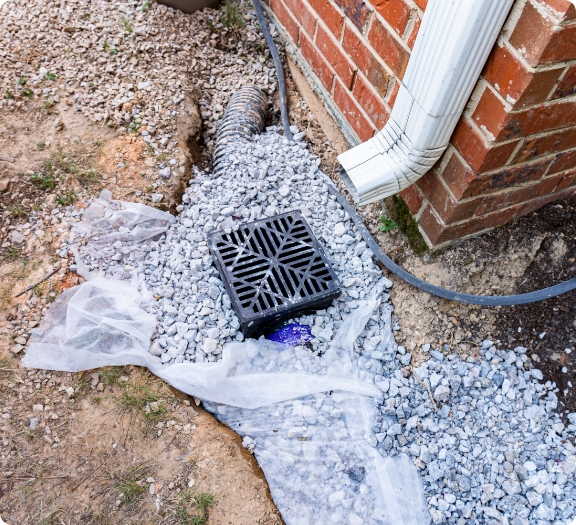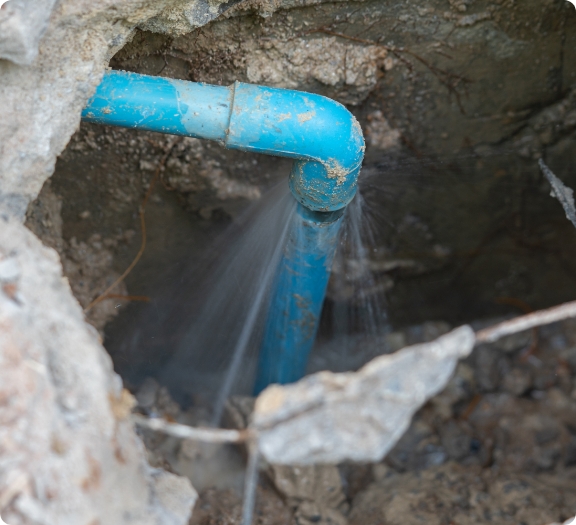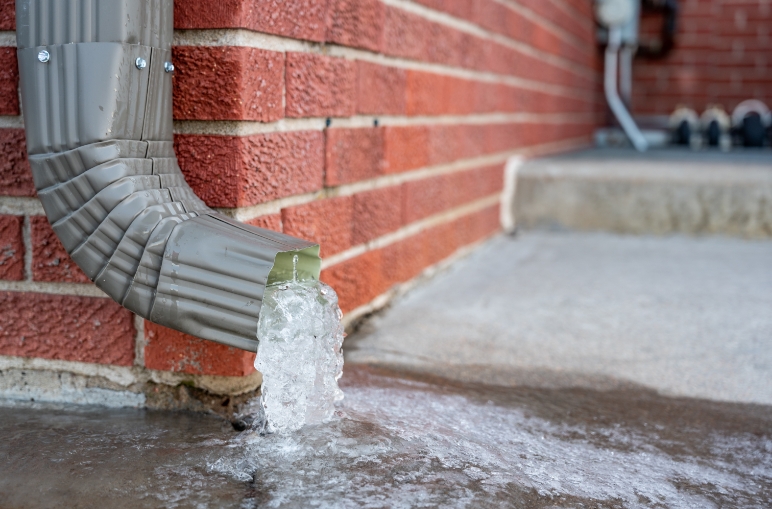How to Prevent Foundation Issues: Essential Tips for Homeowners
Your home’s foundation is one of its most crucial elements, supporting the entire structure and protecting it from shifting, settling, or cracking over time. Unfortunately, foundation issues can develop due to various factors, with water being a significant culprit. Preventing foundation problems is much easier and more affordable than repairing them. Here are some practical tips to help you safeguard your foundation and keep it in top condition for years to come.
Gutters: Your First Line of Defense
A well-maintained gutter system is essential for keeping water away from your foundation. Gutters collect rainwater from your roof, channeling it away from your home’s perimeter. Here’s how to make sure they’re doing their job:
- Clean Regularly: Clogged gutters cause water to overflow and accumulate around your foundation. Clean your gutters at least twice a year to remove leaves, twigs, and other debris. In high foliage areas, consider more frequent cleaning.
- Invest in Gutter Guards: Gutter guards can prevent debris buildup, making maintenance easier and reducing clogs.
Keeping gutters clear ensures water is efficiently directed away from your foundation, helping prevent soil erosion and excess moisture accumulation.
Downspouts: Directing Water Safely Away
Downspouts are crucial for channeling water from gutters to a safe distance from your foundation. Even with clean gutters, improperly directed downspouts can cause foundation problems.
Use Downspout Extensions
Attach extensions to your downspouts to guide water at least 4-6 feet away from your home. This keeps moisture from seeping into the soil around your foundation.
Check for Obstructions
Regularly inspect downspouts to ensure they’re not clogged or damaged. Look for cracks or leaks, and make repairs as needed to maintain effective water flow.
Directing water away from your foundation reduces pressure on the soil beneath your home and helps prevent cracking and shifting.
Control the Moisture Level Around Your Foundation
The soil around your foundation should have a consistent moisture level. Dramatic changes in moisture can cause the soil to expand and contract, putting pressure on your foundation.
- Avoid Overwatering: Excessive irrigation, especially around flower beds or landscaping, can saturate the soil near your foundation, leading to erosion or shifting. Use drip irrigation and avoid heavy watering close to your home.
- Water During Dry Periods: During droughts, the soil around your foundation can dry out and shrink, causing gaps that may lead to foundation settling. Lightly water the soil around your home during prolonged dry periods to maintain balanced moisture.
Maintaining consistent moisture levels minimizes soil movement, helping to keep your foundation stable.

Grade Your Yard Correctly
Proper yard grading directs water away from your foundation rather than letting it pool around your home.
- Slope Away from Your Foundation: Ensure the ground around your home slopes downward, away from the foundation, at a rate of about 5% grade. This prevents water from collecting near the foundation walls.
- Fill Low Spots: If you notice any low areas around your foundation where water tends to pool, fill them with soil to create a gradual slope.
Yard grading is a simple yet effective way to reduce water buildup around your foundation.
Inspect for Leaks and Plumbing Issues
Leaks in plumbing systems, particularly in basements and crawl spaces, can introduce moisture into the soil around your foundation.
- Check for Leaks: Inspect your home for signs of leaks, such as damp walls, mold growth, or pooling water in basements and crawl spaces.
- Repair Immediately: Fix any leaks as soon as possible, especially near your foundation. Prompt repairs prevent further moisture buildup and help protect the stability of your foundation.
Addressing leaks early can prevent them from causing long-term damage to your foundation.

Keep an Eye on Soil Erosion
Soil erosion around your foundation can expose your home to increased risk of settling and cracks.
- Install Mulch or Ground Cover: Mulch helps retain moisture and can prevent soil erosion near your foundation.
- Use Landscaping Stones or Barriers: Stones and barriers can also help keep soil in place, particularly on slopes where erosion may be more common.
Preventing soil erosion will help maintain the ground’s stability, supporting your foundation over time.
Schedule Regular Foundation Inspections
Regular inspections by a foundation repair professional can help catch potential issues early, preventing minor problems from turning into major repairs.
Annual Inspections
Schedule yearly foundation inspections to check for early warning signs, such as small cracks, sloping floors, or moisture issues.
Be Proactive
If you notice any signs of foundation damage, don’t wait—seek a professional inspection as soon as possible to avoid costly repairs.
Regular inspections are a valuable investment, helping you stay ahead of potential foundation issues.
Maintaining your foundation isn’t complicated, but it does require consistent attention to a few key areas around your home. Gutters, downspouts, yard grading, and proper landscaping all play crucial roles in keeping your foundation strong and stable. By following these tips and scheduling regular inspections, you can protect your home from potential foundation problems and ensure it remains safe and sound for years to come.
If you’re in the Southern Kentucky or Middle Tennessee area, Foundation Solutions Group is here to help.
Contact us today for a free inspection and let us help you keep your foundation—and your home—protected from water and other foundation threats.

Written By Shaun Miller, Owner Foundation Solutions Group
Shaun Miller is the owner of Foundation Solutions Group, a trusted foundation repair and waterproofing company serving South Central Kentucky and Middle Tennessee. With over 20 years of experience, Shaun is committed to delivering quality craftsmanship and ensuring that every project is done right the first time, backed by the company’s “Fix-It-Forever Guarantee.” Passionate about educating homeowners, Shaun leads the company’s "Solutions University" initiative to help clients protect their homes through knowledge and preventative care. Dedicated to his community, Shaun also supports local organizations and values the trust his customers place in him.

